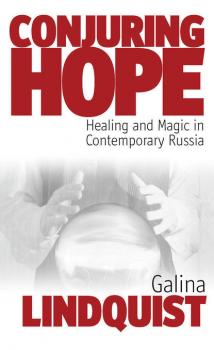ТОП просматриваемых книг сайта:
Биология
Различные книги в жанре Биология, доступные для чтения и скачиванияАннотация
This volume offers a comprehensive guide to methods used in the sociocultural, linguistic and historical research of food use. This volume is unique in offering food-related research methods from multiple academic disciplines, and includes methods that bridge disciplines to provide a thorough review of best practices. In each chapter, a case study from the author's own work is to illustrate why the methods were adopted in that particular case along with abundant additional resources to further develop and explore the methods.
Информация о книге
Автор произведения Группа авторов
Жанр Биология
Серия Research Methods for Anthropological Studies of Food and Nutrition
Аннотация
Biocultural and archaeological research on food, past and present, often relies on very specific, precise, methods for data collection and analysis. These are presented here in a broad-based review. Individual chapters provide opportunities to think through the adoption of methods by reviewing the history of their use along with a discussion of research conducted using those methods. A case study from the author's own work is included in each chapter to illustrate why the methods were adopted in that particular case along with abundant additional resources to further develop and explore those methods.
Информация о книге
Автор произведения Группа авторов
Жанр Биология
Серия Research Methods for Anthropological Studies of Food and Nutrition
The Online World of Surrogacy - Zsuzsa Berend
Fertility, Reproduction and Sexuality: Social and Cultural PerspectivesАннотация
Zsuzsa Berend presents a methodologically innovative ethnography of SurroMomsOnline.com, the largest surrogacy support website in the United States. Surrogates’ views emerge from the stories, debates, and discussions that unfold online. The Online World of Surrogacy documents these collective meaning-making practices and explores their practical, emotional, and moral implications. In doing so, the book works through themes of interest across the social sciences, including definitions of parenthood, the symbolic role of money, reproductive loss, altruism, and the moral valuation of relationships.
Информация о книге
Автор произведения Zsuzsa Berend
Жанр Биология
Серия Fertility, Reproduction and Sexuality: Social and Cultural Perspectives
Аннотация
What makes people lose faith in democratic statecraft? The question seems an urgent one. In the first decades of the twenty-first century, citizens across the world have grown increasingly disillusioned with what was once a cherished ideal. Setting out an original theoretical model that explores the relations between democracy, subjectivity and sociality, and exploring its relevance to countries ranging from Kenya to Peru, The State We’re In is a must-read for all political theorists, scholars of democracy, and readers concerned for the future of the democratic ideal.
Аннотация
Astana, the capital city of the post-Soviet Kazakhstan, has often been admired for the design and planning of its futuristic cityscape. This anthropological study of the development of the city focuses on every-day practices, official ideologies and representations alongside the memories and dreams of the city’s longstanding residents and recent migrants. Critically examining a range of approaches to place and space in anthropology, geography and other disciplines, the book argues for an understanding of space as inextricably material-and-imaginary, and unceasingly dynamic – allowing for a plurality of incompatible pasts and futures materialized in spatial form.
Аннотация
Writing is crucial to anthropology, but which genres are anthropologists expected to master in the 21st century? This book explores how anthropological writing shapes the intellectual content of the discipline and academic careers. First, chapters identify the different writing genres and contexts anthropologists actually engage with. Second, this book argues for the usefulness and necessity of taking seriously the idea of writing as a craft and of writing across and within genres in new ways. Although academic writing is an anthropologist’s primary genre, they also write in many others, from drafting administrative texts and filing reports to composing ethnographically inspired journalism and fiction.
Аннотация
The 1880s were a critical time in Cameroon. A German warship arrived in the Douala estuary and proclaimed Cameroon a protectorate. At that time, two Swedes, Knutson and Waldau, were living on the upper slopes of the Cameroon Mountain. Very little is known about their activities. One, Knutson, wrote a long memoir of his time in Cameroon (1883-1895) which is published here for the first time. It gives fascinating insights into everyday life in Cameroon and into the multifaceted relationships among the various Europeans, and between them and the Africans, at the end of the 19th century; we learn about the Swedes' quarrels first with the Germans and later with the British, over land purchases, thus revealing the origins of long on-going disputes over Bakweri lands. We are given vivid descriptions of Bakweri notables and their, and the Europeans', cultural practices, a rare eye-witness account of the sasswood witchcraft ordeal, and learn about Knutson's friendships with slaves. Together with appended contemporary correspondence, legal opinions, and early (translated) texts, this memoir must be considered as a unique and invaluable primary source for the pre-colonial history of Cameroon.
Аннотация
Modern medicine has penetrated Bedouin tribes in the course of rapid urbanization and education, but when serious illnesses strike, particularly in the case of incurable diseases, even educated people turn to traditional medicine for a remedy. Over the course of 30 years, the author gathered data on traditional Bedouin medicine among pastoral-nomadic, semi-nomadic, and settled tribes. Based on interviews with healers, clients, and other active participants in treatments, this book will contribute to renewed thinking about a synthesis between traditional and modern medicine – to their reciprocal enrichment.
Аннотация
Notions of magic and healing have been changing over past years and are now understood as reflecting local ideas of power and agency, as well as structures of self, subjectivity and affect. This study focuses on contemporary urban Russia and, through exploring social conditions, conveys the experience of living that makes magic logical. By following people’s own interpretations of the work of magic, the author succeeds in unraveling the logic of local practice and local understanding of affliction, commonly used to diagnose the experiences of illness and misfortune.
Аннотация
The availability of food is an especially significant issue in zones of conflict because conflict nearly always impinges on the production and the distribution of food, and causes increased competition for food, land and resources Controlling the production of and access to food can also be used as a weapon by protagonists in conflict. The logistics of supply of food to military personnel operating in conflict zones is another important issue. These themes unite this collection, the chapters of which span different geographic areas. This volume will appeal to scholars in a number of different disciplines, including anthropology, nutrition, political science, development studies and international relations, as well as practitioners working in the private and public sectors, who are currently concerned with food-related issues in the field.










